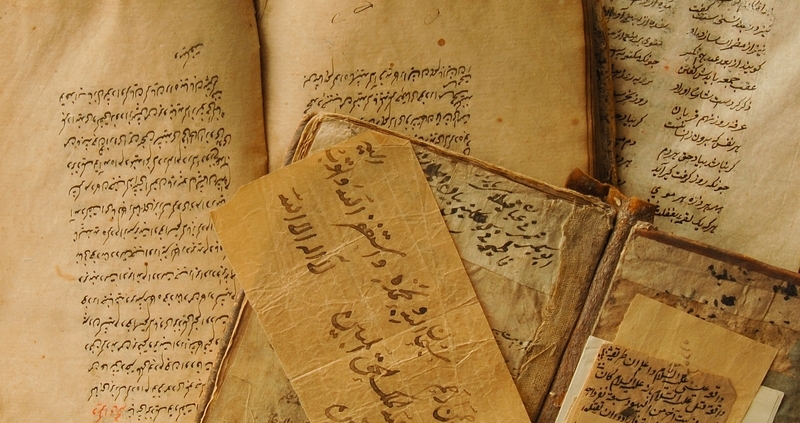Did the Prophet (Allah bless him and give him peace) and Companions Debate With the Atheists, Polytheists, Christians, and Jews?
Answered by Mawlana Ilyas Patel
Question
Did the Noble Prophet (Allah bless him and give him peace) the companions debate with the atheists, polytheists, Christians, Jews, etc.? There are references to debates, but I don’t know many examples. Shaykh Abdal Hakim Murad alludes to “the polemical cauldron of Meccan debate” in chapter 7 of Travelling Home. Can you please provide examples?
Answer
In the Name of Allah, the Most Merciful and Compassionate
I pray you are in good faith and health. Thank you for your question.
Yes, there were discussions and debates between the Prophet and others. Some are mentioned below:
The Discussion between the Abyssinian King and the First Immigrants
He was opposed when the Messenger of Allah (Allah bless him and give him peace) declared His message. Finally, he permitted a group of companions to migrate to Abyssinia.
When the Makkans heard that the Muslims had begun to live within the Christian community peacefully, they sent a delegation of learned people to the King to persuade him to deport the Muslims from Abyssinia. There was a debate in front of the King between the Muslims and the Makkan delegation about what and how the Muslims believed. After the end of the debate, the King rejected the requests of the Makkans along with their gifts. This was the first helping hand from a Christian ruler for the young but frail Muslim community.
The Delegation of the Najran Christians
Undoubtedly, the most important interaction between the Christians and the Prophet was the visit of the Najran delegation to Madina. Makka and Madina had a tiny Christian population; Waraqa ibn Nawfal was one of them. The majority of Christian residents lived in Najran. The Prophet’s first significant encounter with Christian clergies was in the 9th year of Hijra (AD 631), one or two years before his death.
The Messenger of Allah (Allah bless him and give him peace) sent official letters to different countries and their rulers, inviting them to Islam. Two different invitations were sent to Najran with Khalid ibn al-Walid and Ali ibn Abi Talib (Allah be pleased with them). At that time, the Najran Christians had a highly organized religious life. Before Islam, foreign teachers, such as Italian priest Gregentius, had even visited the town, which deepened their religious knowledge. A few Najran Christians converted to Islam; most did not change their religion after these invitations.
Prophet Muhammad sent a representative to them, Mughira ibn Shu‘ba (Allah be pleased with him), who was sent to explain the invitations and the religion of Islam. After discussions with Mughira, the Christians of Najran sent a group of people to visit the Prophet. The delegation comprised about 60 well-educated Christians: A bishop, his 45 scholars, and 15 men. They intended to learn the nature of the revelations Prophet Muhammad was receiving.
When the Najran delegation reached Madina, they debated with the Prophet in an investigatory dialogue for two or three days in Madina’s mosque. Prophet Muhammad allowed them to pray in the mosque (Masjid al-Nabawi) where the Muslims prayed. The incident was the first occurrence of peaceful dialogue between Christians and Muslims; it was the first time Christians prayed in a mosque.
Prophet Muhammad warmly welcomed the Najran delegation and provided them with a place to stay in Madina, a secure place close to his mosque. He even ordered that their tent be pitched for them by the Muslims. However, the Najran delegation and Prophet Muhammad could not solve this in theological terms. At the end of these exchanges, the Najran Christians told the Prophet: “O, Abu al-Qasim, we decided to leave you as you are, and you leave us as we are. But send us a man who can adjudicate things on our properties because we accept you.”
The delegation was granted their request, and the Prophet provided a written assurance that their lives, property, and religion would be protected. He made witnesses sign this undertaking. The Najran Christians were the first Christian community with whom the Prophet had a jizya agreement. At the beginning of the meeting, they had disagreements with the Prophet about the concept of the Trinity, but later on, they were able to make a social pact. This contract was an initial step that would lead to further developments.
[Ibn Hisham, Al-Sira al-Nabawiyya]
I would like you to go through the valuable answers and links below. You will receive guidance and direction in sha Allah.
Related
- The Interfaith Master – Ustadh Ali Ataie – Seekers Highlight – SeekersGuidance
- What Is the Ruling on Becoming a Debater? – SeekersGuidance
- Competing in an Academic Debate Against a Team Called “The Devils” – SeekersGuidance
- Islam and the Other by Mohamed Ghilan – SeekersGuidance
- Did the Prophet or the Companions Partake in Poetry? – SeekersGuidance
Wassalam,
[Mawlana] Ilyas Patel
Checked and Approved by Shaykh Faraz Rabbani
Mawlana Ilyas Patel is a traditionally-trained scholar who has studied in the UK, India, Pakistan, Syria, Jordan, and Turkey. He started his early education in the UK. He went on to complete the hifz of the Quran in India, then enrolled in an Islamic seminary in the UK, where he studied the secular and ‘Aalimiyya sciences. He then traveled to Karachi, Pakistan. He has been an Imam in Rep of Ireland for several years. He has taught hifz of the Quran, Tajwid, Fiqh, and many other Islamic sciences to children and adults onsite and online extensively in the UK and Ireland. He taught at a local Islamic seminary for 12 years in the UK, where he was a librarian and a teacher of Islamic sciences. He currently resides in the UK with his wife. His interest is a love of books and gardening.
